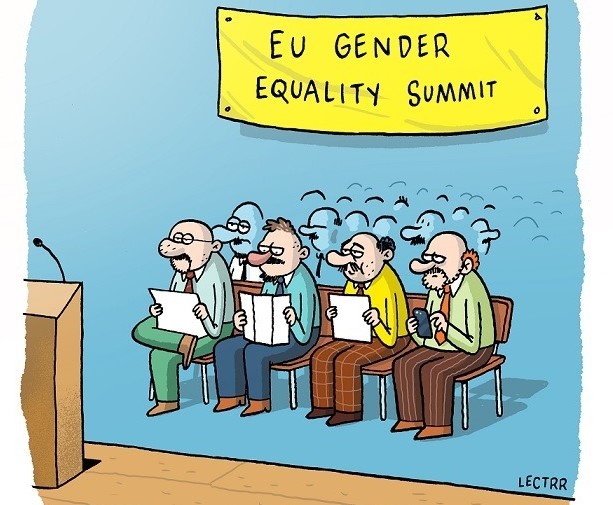Belgium has slipped one place down in the European gender-equality index and is now ranked 9th, according to the European Institute for Gender Equality (EIGE), which says the EU as a whole is making slow progress in this field.
At the present rate, the EU will not achieve gender equality before 60 years, EIGE warned on Thursday in its latest annual index.
The Gender Equality Index measures gaps between men and women in six core domains: work, money, knowledge, time, power and health, and their sub-domains. The results for this year’s ranking are mostly based on 2018 data, with 100 points standing for full equality.
Sweden and Denmark have been the best performers since 2010. Hungary has the lowest score in the domain of power where it has continually ranked last since 2015. Indicators measuring the gender gap in this domain include the share of female government ministers and MPs as well as the share of women in high positions at companies, media and sport organisations.
Europe has made regular, modest progress from year to year, but now has reason for concern, since the novel Coronavirus (COVID-19) pandemic severely threatens progress made on gender-equality, EIGE Director Carlien Scheele said.
According to the EIGE’s latest index, the EU improves by just half of a percentage point each year, and now has an overall gender-equality rate of 67.9/100.
Belgium has been improving its rate each year by an average 2.1% since 2010 and now stands at 71,4%. It is now in ninth place in Europe, one slot down from last year and four places lower than 10 years ago.
The country is holding its own in terms of remuneration, health and education, although, like the rest of the EU, it still needs to rise to the challenge posed by the need to increase the number of women in decision-making roles in politics, the economy, media, research and sports.
Stronger improvement has been observed in the private sector, mainly because of increased gender balance in boardrooms.
This year’s index places special emphasis on the effects of digitisation on the professional lives of men and women.
Women run a slightly higher risk of being replaced at their jobs by robots. They are also under-represented in the development of artificial intelligence, digital start-ups and high-technology goods, the European institute noted.
The European Commissioner in charge of Equality, Helena Dalli, urged countries to fully implement the EU strategy in favour of gender equality, which was adopted this year for the next five years.
For its part, the Belgian institute for Gender Equality on Thursday zoomed in on statistics showing that while male and female employment rates have tended to be similar in recent years, the distribution of labour in the home has been evolving at a much slower pace.
Almost half of working women with young children (46%) adapt the organisation of their work while only 22% of men in a similar situation do so. Most of the time, the decision taken is to reduce one’s working hours, which 24% of young mothers have decided to do as against 6% of young fathers.
“The new government promises to raise parental leave for fathers and co-parents of newborns to 20 days. The institute welcomes this measure. Moreover, making parental leave compulsory should ease the pressure that makes people prioritise work,” the Belgian Institute for Gender Equality commented in a press release.
The Brussels Times

